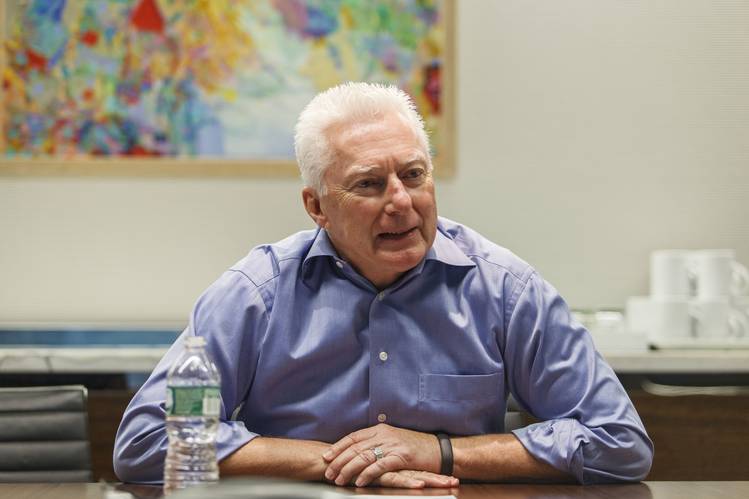The Case for Humble Executives
The Mindfulness for Emerging Leaders Classes I teach for MBA students focuses on emotional intelligence and surely that includes listening skills.
Here is something from WSJ.com that might interest you:
The Case for Humble Executives
Source: WSJ.com, Author: Joann S. Lublin

Procter & Gamble’s chief executive, A.G. Lafley, pictured in June, struck a humble tone with shareholders last week.
PHOTO: TIMMY HUYNH/THE WALL STREET JOURNAL
Procter & Gamble Co. Chief Executive A.G. Lafley struck a humble tone during last week’s annual shareholders meeting.
Taking the blame for the consumer-products company’s weak performance, the departing CEO told investors “the buck stops with me” and assured them his successor would do better. Mr. Lafley was responding to investor criticism of P&G’s strategy and recent stock-price performance. He will stay on as executive chairman after David Taylor becomes CEO Nov. 1.
Among executives, humility “is the flavor du jour,” says Fred Hassan,a former CEO of Schering-Plough Corp. and author of a book on leadership. Companies increasingly prize humble leaders because they listen well, admit mistakes and share the limelight, recruiters and coaches say.
“The servant leadership model promotes collaboration,” says Dale E. Jones, chief executive of recruiters Diversified Search Inc.
That’s easier said than done for corporate climbers. At a seminar for aspiring CEOs this year, Mr. Hassan described how they could promote themselves but remain humble, warning them against aggressive self-promotion. For instance, he advises, don’t circumvent the boss and brag about your work to the boss’s boss.
Krispy Kreme Doughnuts Inc. sought a CEO with humble servant leadership during a hunt completed by Mr. Jones last year. Anthony “Tony” N. Thompson, hired to head the chain, “exhibited those two characteristics strongly,” remembers his predecessor, James H. Morgan. Humility represents “an important trait in our company,” adds Mr. Morgan, who remains chairman.
Some may wonder if it is just as good to seem humble.
Faux humility annoys people, explains Francesca Gino, a Harvard Business School professor of business administration who co-wrote a research paper about the shortcomings of “humblebragging,” boasts masquerading as self-deprecating complaints.
Consider the job candidate who says “I work too hard” when asked to describe their shortcomings. Researchers found that opening up about real weaknesses “leads to a better likelihood of getting a job,” she says.
“If you have to act humble, it won’t work. You either are or you’re not,” concurs Mr. Morgan.
Oscar Munoz, the new chief of United Continental Holdings Inc.,started his tenure last month with an apology to customers and employees and a vow to spend his first 90 days on a listening tour with staff. Mr. Munoz suffered a heart attack on Oct. 15, the day he was due to meet with union leaders, and has remained hospitalized.
Frank Blake, a retired chairman and CEO of Home Depot Inc., says he stressed his limited retail-industry experience when directors of the do-it-yourself chain wanted to promote him to the top job in 2007. A General Electric Co. alumnus, he had worked at Home Depot for five years.
“I don’t think I am the right guy,” Mr. Blake recalls warning board members.
Mr. Blake believes his scant retail know-how made it easier to be a humble leader of Home Depot. During his nearly eight-year command, he also favored colleagues with a similar style. “You were better off acknowledging what you needed to work on” than being boastful, he observes.
A Bausch & Lomb division head in “self-promotion mode” wound up getting ousted a few years ago, recollects Mr. Hassan, its then-chairman.
Recruited from a much bigger employer, the division head at the eye-products concern pushed to expand into product areas that would impress the board, but his division needed a turnaround, Mr. Hassan says. Subordinates complained that he ignored their problems, such as repairing ties with certain customers. “Had he been humble,” Mr. Hassan notes, “he would have set the right priorities.”
Some executives spend years developing humble listening skills—asWilliam M. Lambert did before and after his 2008 advancement to CEO of MSA Safety Inc., a maker and supplier of safety products.
Bob Rogers, president of Development Dimensions International, a leadership consultancy, began coaching him when he took charge of MSA’s North American unit in 2003. Mr. Rogers counted how often Mr. Lambert told his management team what to do rather than request their input. He issued orders a lot.
His team members told the coach that “Bill has preconceived ideas and he doesn’t allow for full discussion,” Mr. Lambert remembers. The executive asked a trusted peer to check his behavior.
Nevertheless, directors told Mr. Lambert he came across as overconfident and unwilling to listen during his second year in the corner office. His reviews improved after he showed respect for board members’ ideas.
“As a leader, you need to have a strong ego,” Mr. Lambert says. “But you can’t have a big ego.”
It should go without saying that humble leaders don’t steal credit from colleagues. “Credit when you do well will come to you,” Krispy Kreme’s Mr. Morgan says he used to assure his executives. Not everyone listened.
One lieutenant disappeared while subordinates developed new products and equipment, only to claim credit when they were unveiled to the top brass.
“He took the limelight,” Mr. Morgan recalls. “He didn’t understand the humility part.” Krispy Kreme fired the man a year later.


